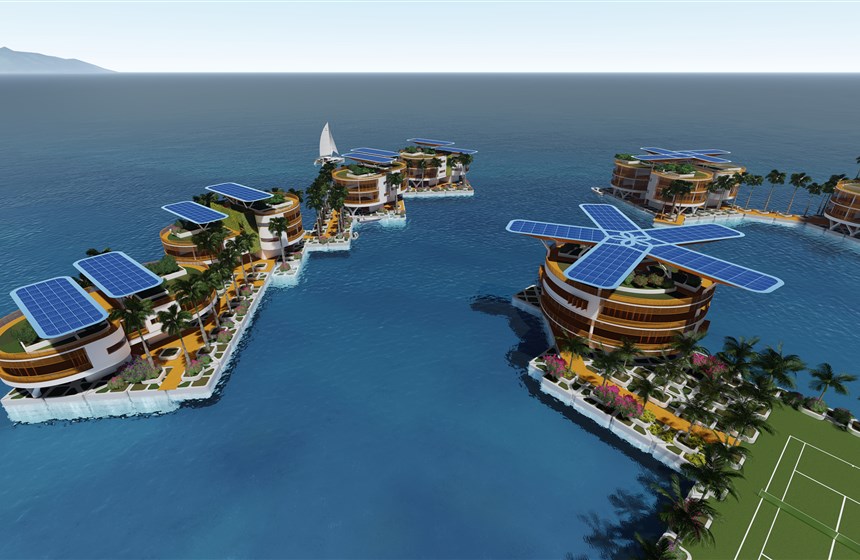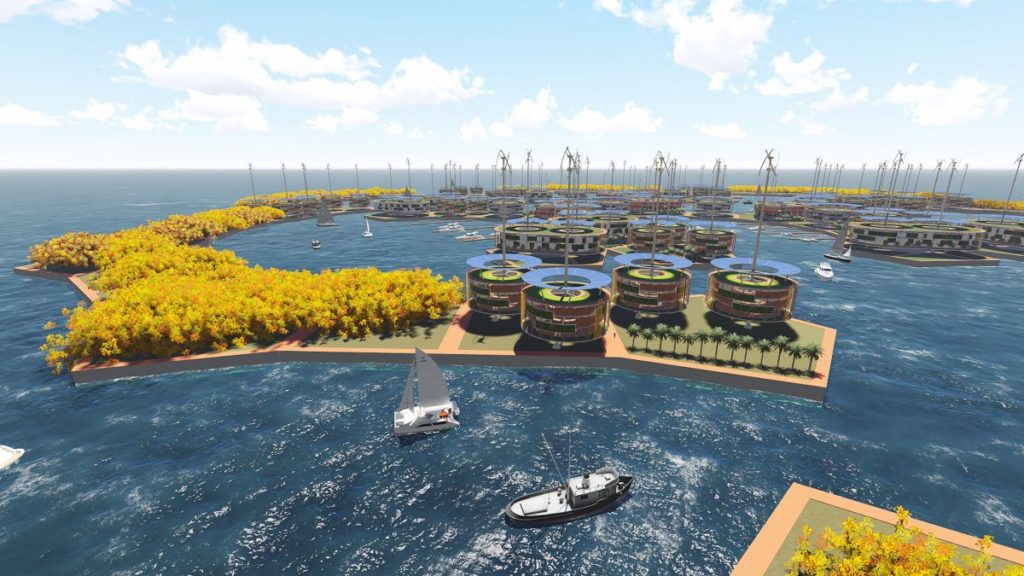PayPal founder Peter Thiel is developing the world’s first floating city

If you are like the rest of us, we dream of great summer vacation in a tropical island sipping margarita at beach bar overlooking the sea. But that is not what prompted Peter Thiel, the founder of PayPal, to come up with an ambitious project of creating a floating city. He came with the idea of utopian floating communities that exist outside today’s international borders, territorial waters and legal jurisdictions. In 2008, Peter Thiel funded the Seasteading Institute. The Seasteading Institute empowers people to build floating startup societies with innovative governance models. It is entirely supported by donations from individuals who share their vision.
On January 13, 2017 Seasteading Institute signed a Memorandum Of Understanding (MOU) with French Polynesia to cooperate on the creation of a seazone with a “unique governing framework”, where they can begin seasteading. The project is called “The Floating Island Project.” For five years, The Seasteading Institute has been conducting research into the potential for permanent, innovative communities – floating at sea. We are now able to apply this foundation of knowledge and our network towards an actual design, along with additional efforts to determine specific needs and desires of potential customers, and to select a practical location for what could become the world’s first city at sea. The team wants to grow much of its food through aquaculture, which involves breeding plants and fish in water. The islands would run on solar power and continuously gather and recycle its water from the ocean.

The term seasteading has been around since 1981, when avid sailor Ken Neumeyer wrote a book titled: Sailing the Farm. The book discussed living sustainably aboard a sailboat. Two decades later, the idea attracted the attention of Patri Friedman, grandson of economist Milton Friedman, who later founded Seasteading Institute. Friedman is a freethinker who had founded “intentional communities” while in college. He was living in Silicon Valley at the time and was inspired to think big. So in 2008 he quit his job at Google and co-founded the Seasteading Institute with seed funding from Peter Thiel, the libertarian billionaire. In a 2009 essay, Thiel described seasteading as a long shot, but one worth taking. “Between cyberspace and outer space lies the possibility of settling the oceans,” Thiel wrote.

